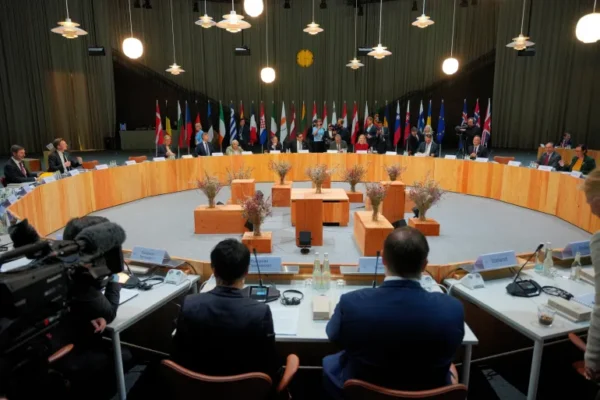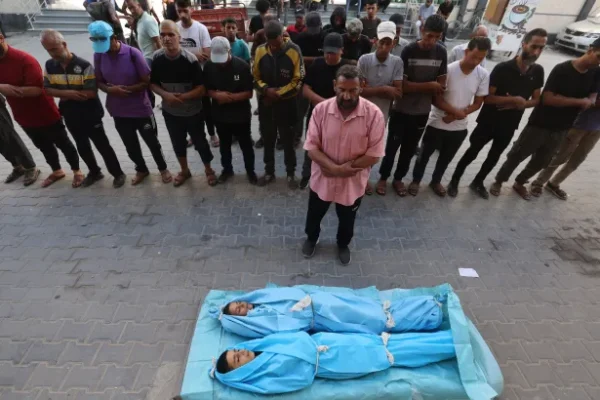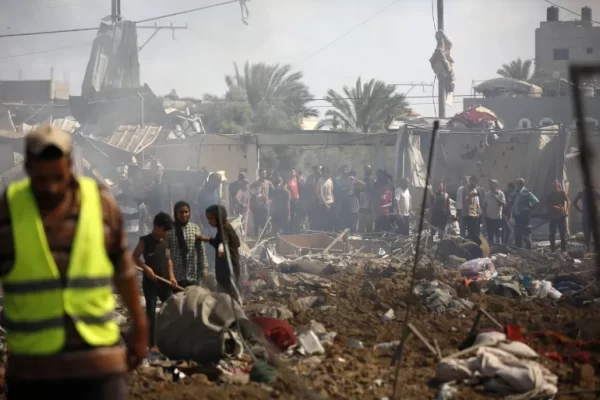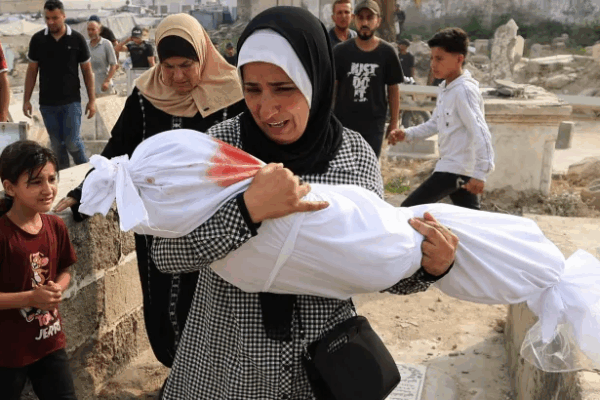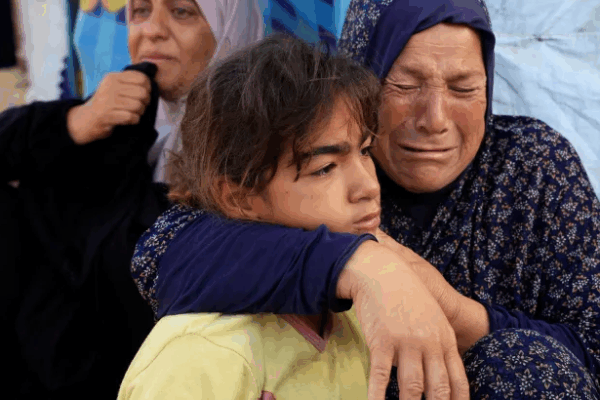
Israeli Military’s Former Top Lawyer Arrested Over Leaked Video — As Bodies of 45 Palestinians Handed Over
Israel’s former top military lawyer has been arrested after admitting to leaking a video showing soldiers allegedly abusing a Palestinian prisoner. The growing scandal comes as Israel handed over the bodies of 45 Palestinians, according to health officials in Gaza. An Israeli official said ex-military advocate Major General Yifat Tomer-Yerushalmi was taken into custody overnight on Sunday — just days after resigning from her post, the Associated Press reported. She was arrested following a search along the Tel Aviv beach, after her family raised concerns for her safety, according to Israel’s Channel 12. Former chief military prosecutor Colonel Matan Solomesh was also detained overnight as part of the investigation into the leaked footage, reported Israel’s Army Radio. The leaked video, aired last year, purportedly shows an incident involving Israeli soldiers and a Palestinian prisoner at the Sde Teiman detention facility in southern Israel. The developments came as the bodies of 45 Palestinians were received at Nasser Hospital in Gaza on Monday morning, a Gaza health ministry spokesperson told the Associated Press. The handover followed Israel’s announcement that Hamas had returned the remains of three Israeli troops taken hostage during the 7 October 2023 attack on southern Israel. Israel said the soldiers were killed in the initial assault, and their bodies were subsequently dragged into Gaza by militants. A Hamas statement said the remains were found on Sunday in a tunnel in southern Gaza. Since the ceasefire began on 10 October, Palestinian militants have released the remains of 20 hostages, with eight still believed to be in Gaza. Hamas has released one or two bodies every few days. Israel has demanded faster progress in the exchanges and, in some instances, has disputed the identities of the remains handed over. Hamas said efforts to recover and return bodies have been complicated by Gaza’s widespread destruction. Israel has reportedly released the remains of 15 Palestinians for each hostage returned, while health officials in Gaza continue to struggle with identification challenges due to the lack of DNA testing kits.


